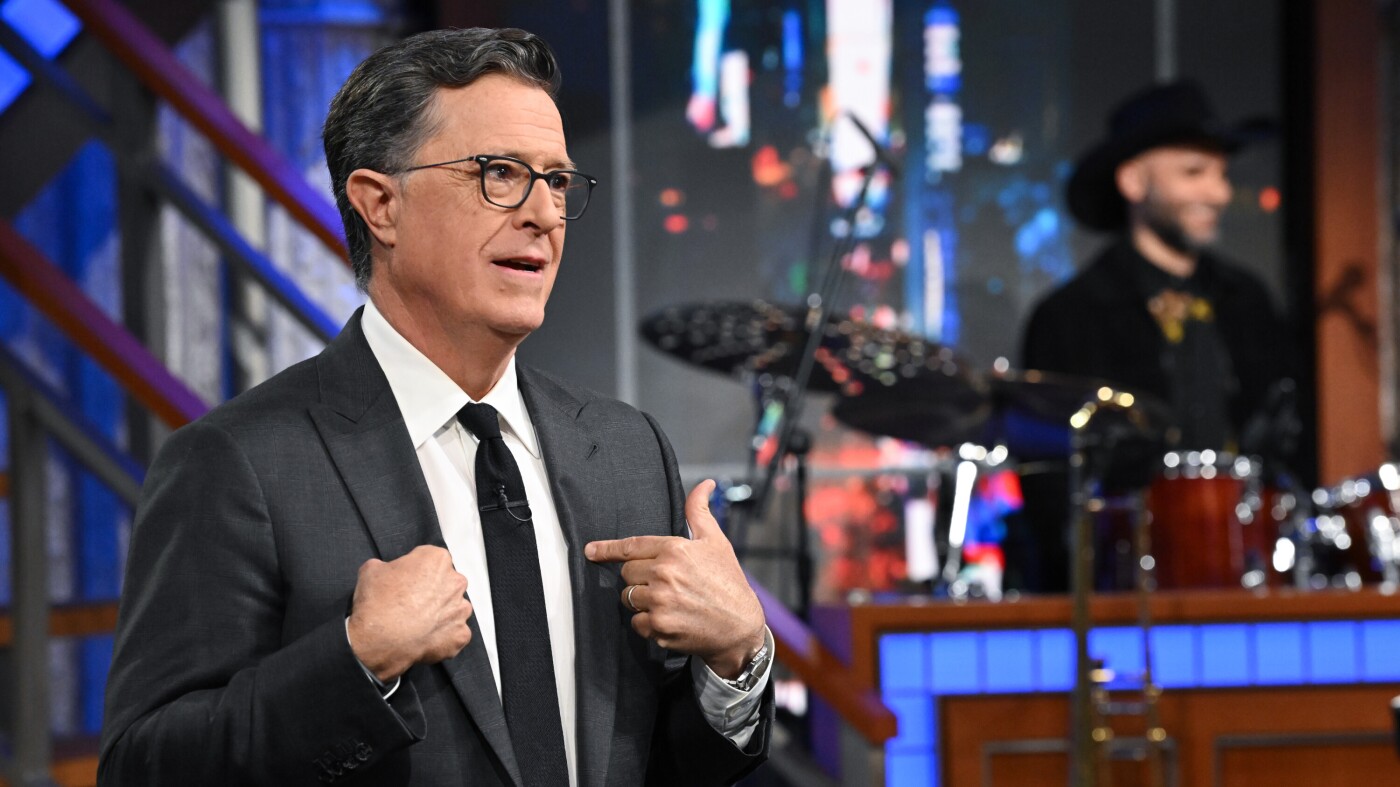When federal regulators approved an $8-billion merger between Paramount and Skydance on Thursday, media analysts immediately questioned the timing. The approval followed, by about a week, Paramount-owned CBS’s announcement that it was canceling The Late Show, hosted by Stephen Colbert, a vocal and persistent critic of President Trump and his administration.
CBS asserted that the cancellation, which takes effect when Colbert’s contract ends in May 2026, was a “purely a financial decision.” However, the proximity of the two events led many to wonder if silencing a prominent detractor of the president was a factor in securing the deal.
Any assumption that Colbert’s cancellation might temper political commentary across Paramount’s other properties was swiftly proven wrong. Last Monday, Jon Stewart opened The Daily Show on Comedy Central with a blistering monologue questioning the network’s rationale. He argued that the creative work of shows like Colbert’s contributed significantly to the company’s value. “The shows that you now seek to cancel, censor and control… a not insignificant portion of that $8 billion value came from those shows,” Stewart said, concluding with an impassioned musical segment aimed at institutions that might self-censor to avoid government reprisal.
The comedic pushback intensified on Wednesday with the 27th season premiere of South Park. Creators Trey Parker and Matt Stone, who recently signed a five-year, $1.5-billion deal with Paramount, delivered a savagely pointed satire. The episode, titled “Sermon on the Mount,” targeted President Trump, the Colbert cancellation, the rise of Christian nationalism, and the use of lawsuits to intimidate critics. Parker and Stone, known for their rebellious streak, demonstrated that a lucrative corporate deal would not blunt their satirical edge.
Even as this unfolded, Colbert used his own platform to respond. Promising that “for the next 10 months, the gloves are off,” he directly addressed a social media post from Trump celebrating his firing. Imitating the president, Colbert said, “‘I absolutely love that Colbert got fired. His talent was even less than his ratings.’ How dare you sir?” he continued in his own voice. “Would an untalented man be able to compose the following satirical witticism: Go f— yourself.” Throughout the week, Colbert continued to mock reports that his show was losing millions annually.
David Letterman, the previous host of The Late Show, also weighed in, calling the cancellation “pure cowardice” and expressing skepticism that the decision was purely financial. Letterman, who had his own famous disputes with network executives, stated that CBS “did not handle Stephen Colbert, the face of that network, in the way he deserves.”
This week has shown that comedians possess a direct and dramatic means of challenging perceived corporate pressure. While news outlets targeted by similar forces may struggle to regain public trust, satirists like Stewart, Colbert, Parker, and Stone can respond immediately on their own stages, reinforcing the independence their audiences value and ensuring that loyalty follows them wherever they go next.






